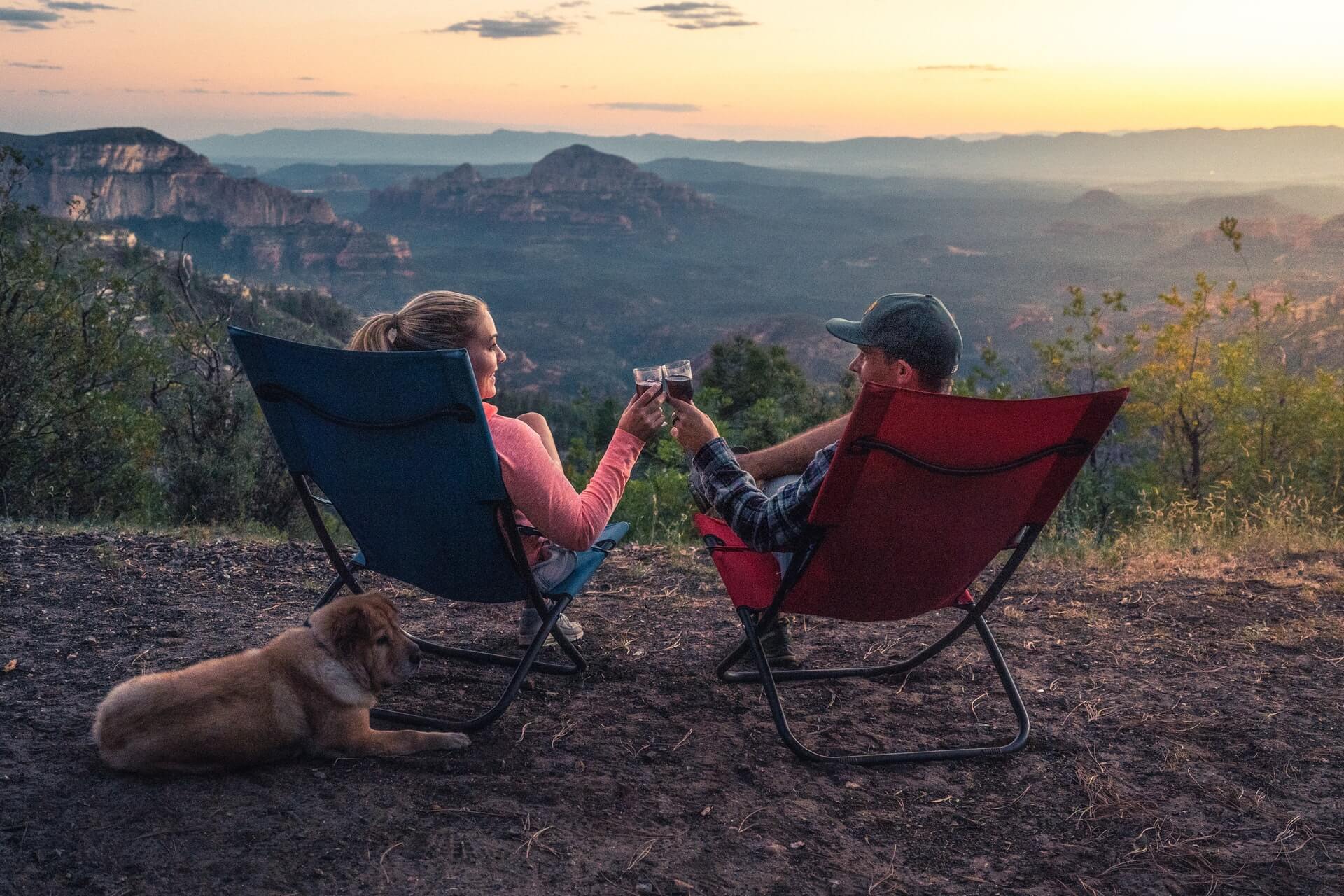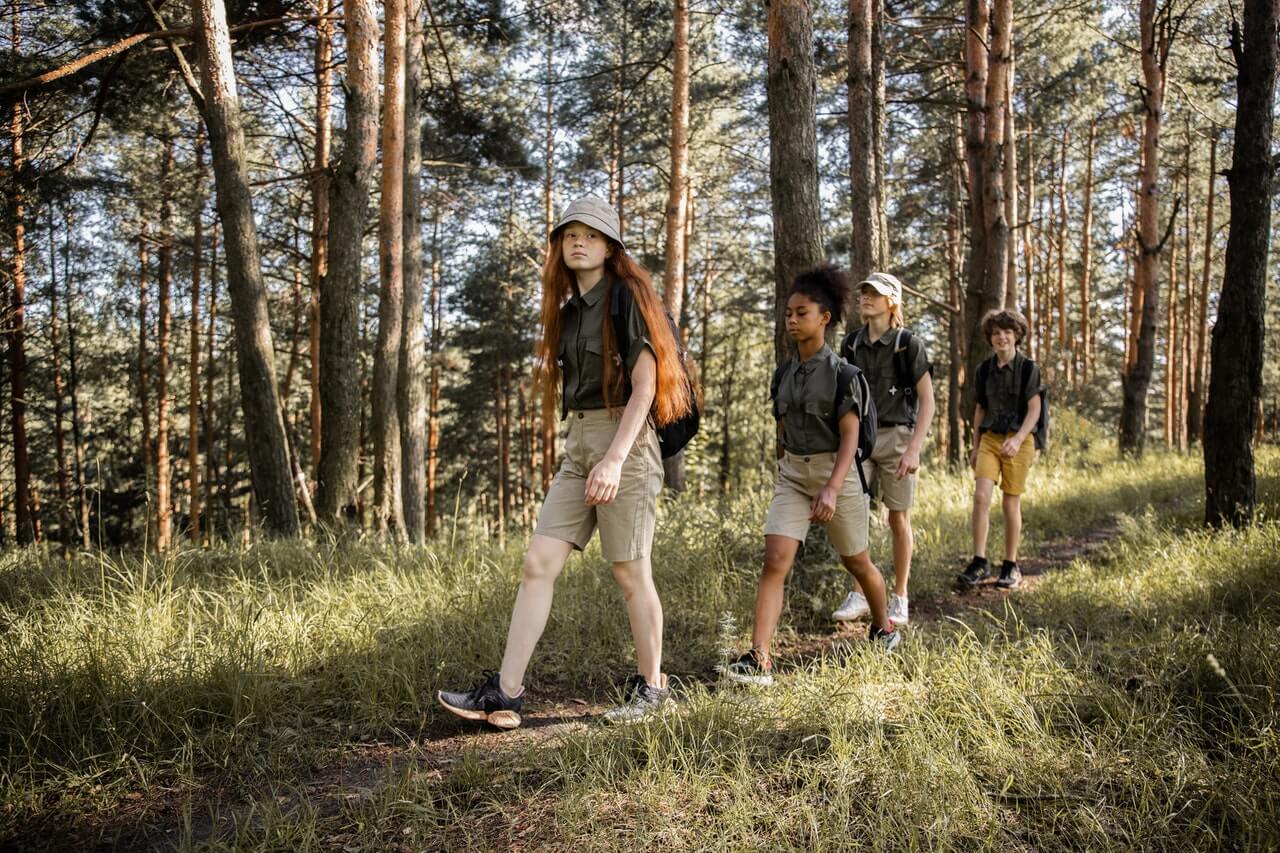What is the LNT Law?
LeaveNoTrace is a national educational campaign launched by land management agencies at all levels of government, environmental education scholars, conservation groups, manufacturers and distributors of outdoor products, hiking groups, and the general public. These public and private sectors, industry, government, and academia have been working together since the 1980s to promote the concept of "responsible quality tourism". They teach the public the correct concepts and techniques to treat the environment and help minimize the impact of recreational activities on nature, and have successfully achieved good results over the years.
LNT Introduction.
The outdoor population grew sixfold from 1965 to 1994, and a survey conducted by the Outreach School showed that 9.9 million Americans were hiking in 1965, a number that had increased to 28 million by 1977. Alpine lakes were polluted by human waste, some trails were knee-deep in erosion, campgrounds became grassless, and litter, large and small, could often be found, leaving land managers with a dilemma, as they had to meet the needs of visitors while trying to protect the natural environment.
In the early 1980s, the Forest Department's initial LNT curriculum began to be introduced to other outdoor programs. While closing certain overused areas, load control, and limiting specific campsites became important management tools for land managers, environmental education for visitors was actually a more effective solution. In the early 1980s there were countless environmental education programs taught in land management units, with slogans such as "What goes up must come down," "Tread lightly," and "Take only pictures and leave only footprints. " are familiar to many hikers. In 1994 the BoulderColorado-based non-profit organization, LeaveNoTrace, Inc. coordinated the coordination of all LNT units, licensing and fundraising efforts.
The main elements of the LNT law.
1. Plan and prepare in advance
Any outdoor activities need to be planned and prepared in advance, to understand the rules and regulations on environmental protection at the time, to be well prepared for possible situations and to choose the right equipment according to the situation. At the same time, you should fully understand the route characteristics of the activity area and design your route and campsite accordingly. According to the actual situation of the route, plan the amount of food to be brought, and then handle the food in a simple way, and try to pack the food in a centralized way if it can be unpacked, so as to reduce the generation of garbage as much as possible.

2. Traveling and camping on tolerable ground
The LnT rule states that whenever and wherever possible, we should walk on existing trails, not taking shortcuts, not going straight up and down, and the team should only take a single line of travel when marching. If road conditions are good and the pack is not too heavy, consider soft-soled shoes to reduce impact on the ground.
When hiking on non-hiking trails, choose to walk on, for example, rocky outcrops or scree slopes that can withstand human trampling; in such areas, spreading out is the best option to reduce the impact on the environment.
The choice of campsite is very important for camping activities with high environmental impact, and we generally require that campsites are located more than 50 meters from water sources to exclude pollutants. On popular routes, camping is only done on campsites with existing hard soil and no grass, concentrating camping activities on areas that have already been impacted. If in an area with little human activity, set up camp on a site that has never been used, not on a lightly impacted area. Camp on existing campsites that have visible signs of existing campsites, which sometimes have signs of fires. If it is a very heavily used camp with heavily eroded ground and exposed roots, then both should choose another place to camp and allow the camp to have a rest.
The most suitable places for camping are rocky, gravelly, sandy places because they are very resistant to human trampling, other good choices are hayfields, and the less resistant to human impact are forested places with rich vegetation while the ground is covered with leaves.
3. Dispose of garbage properly
"Carry everything on your back all the way down the mountain" is an important principle. Keeping the campsite intact reflects the most basic quality of campers. For the disposal of diarrhea, it is accepted to bury it in a cat hole 10-20 cm deep, at least 60 meters away from water sources, campsites or trails. It is important to think carefully about toilet paper. Nature provides many ways to be kinder to the environment, and if you must use toilet paper, you will have to carry it down the mountain, which is necessary to get our attention.
When dealing with food waste, we try to reduce packaging before we leave while also choosing to use reusable utensils as much as possible and plan the right amount to avoid waste. In camping activities, use cleaning products as little as possible, do not wash your face, brush your teeth, wash your clothes or dishes directly in the water source, and pour sewage in a mound more than 50 meters away from the camp and water source and 25 - 30 CM deep. For food residues should be taken away completely, even some degradable food such as fruit cores and peels must be taken away completely.
While dealing with excrement, temporary toilets should be built during camping activities and pits should be dug to cover the excrement. The location of the toilets should be chosen 60 meters away from water sources, campsites and roads. To avoid secondary pollution, the toilet paper used should also be packed and taken away as much as possible, not buried or burned.
Leave a clean campsite and carry all the garbage down the mountain, along with the garbage left by others. Put all your trash in a single garbage bag. Wear lighter weight shoes with flat and soft soles, such as sports sandals or jogging shoes, to reduce the impact of stepping on the land. When you leave a camp in a primitive area, fluff up the grass; fill in the holes left by the camp pegs.
Facing the sacred mountains, even if there is a good view, the garbage everywhere will cleanse your good mood!
4. Keep nature as it is
Return nature to itself. We should choose to wear lighter weight shoes with flat and soft soles, such as sandals, flip-flops or jogging shoes, to reduce the trampling on the land when we are in camp. When encountering such things as cultural and historical footprints, man-made sculptures and buildings, you should not touch them without permission, let alone trample on them. Sometimes, during our activities, we found some team members picking flowers and climbing high walls of wigwams, which are not desirable and should be stopped. In the construction of the camp should also be careful not to dig ditches, change the streams and rivers, when leaving the camp to restore the camp to attract later campers, to achieve the purpose of not important damage to other ground.

5. Fire in the wilderness
Do not use fire in the wilderness. Generally speaking, fire has a great impact on the natural environment, and after a fire, its traces will become larger and larger and never disappear. The permanent damage caused by fire to the soil can be as deep as 10 centimeters, so in the outdoors, use a suitable stove for cooking, wear enough warm clothes, use a tent, and keep warm and dry with a good sleeping bag, and do not use fire easily.
In the event that you must use firewood, first determine whether your location allows it, whether it is fire season, and make sure to find fallen wood for fuel instead of harvesting live trees; the ideal fuel is a branch thinner than your wrist. When lighting a fire, choose to build the fire in the central area where there are signs of a fire, and scatter the charcoal ash in the grass after the wooden idol is all burned out.
In outdoor activities, we do not advocate smoking because, in addition to the "toxicity" of tobacco itself, its butts are made of acetate plastic, which is non-biodegradable, and used butts also contain lead, mercury, arsenic, acetone, vinyl chloride, formaldehyde and hydrogen cyanide in the smoke. Even if you must smoke, you must stay away from your teammates, not to cause secondary pollution, cigarette butts also need to be disposed of together with the garbage and brought down the mountain.
6. Respect for wild animals
In outdoor activities, we should respect the habits and environment of wild animals and achieve a state of peaceful coexistence with them. Pay attention to the protection of water sources and the sources on which animals depend. Whether you see wild animals or not, you should know that your short visits will inevitably affect the local wildlife. When you camp not far from the water source, try to go back and forth to the water source only once to reduce the disturbance to the wildlife, carry collapsible water bags for water, instead of directly using pots to go back and forth to the water source for water, so as to go back and forth to the water source only once to reduce the disturbance to the animals.
At the same time, never feed wild animals, no matter how cute they are, they should not be fed freely, once they lose their survival instincts, it is these wild animals that suffer. In the camp, put all food and attraction in a safe place as well, to avoid making the local wildlife to make a habit of visiting the camp.
Observe from a distance, avoid feeding and coexist peacefully with the wildlife.
7. Consider other wilderness activists
Before starting outdoor activities, you should fully understand the local customs, respect the local ethnic customs, respect the habits and customs of others, and develop good habits. Don't disturb others with entertainment in the camping area, minimize sound as well as visual disturbances, and do whatever you can think of to keep nature as well as the camp quiet, as this is the reason why most outdoor enthusiasts are close to nature.
Respecting nature, caring for nature, and maintaining ecological balance are the responsibilities of outdoor enthusiasts. Whether in the city or outdoors, we should promote environmental protection, start from ourselves, influence others through our actions, and spread the correct concept of environmental protection so that our children and grandchildren can enjoy the blue sky and green water together.
In outdoor activities, don't leave anything behind except footprints; don't take anything away except photos and fresh air.


